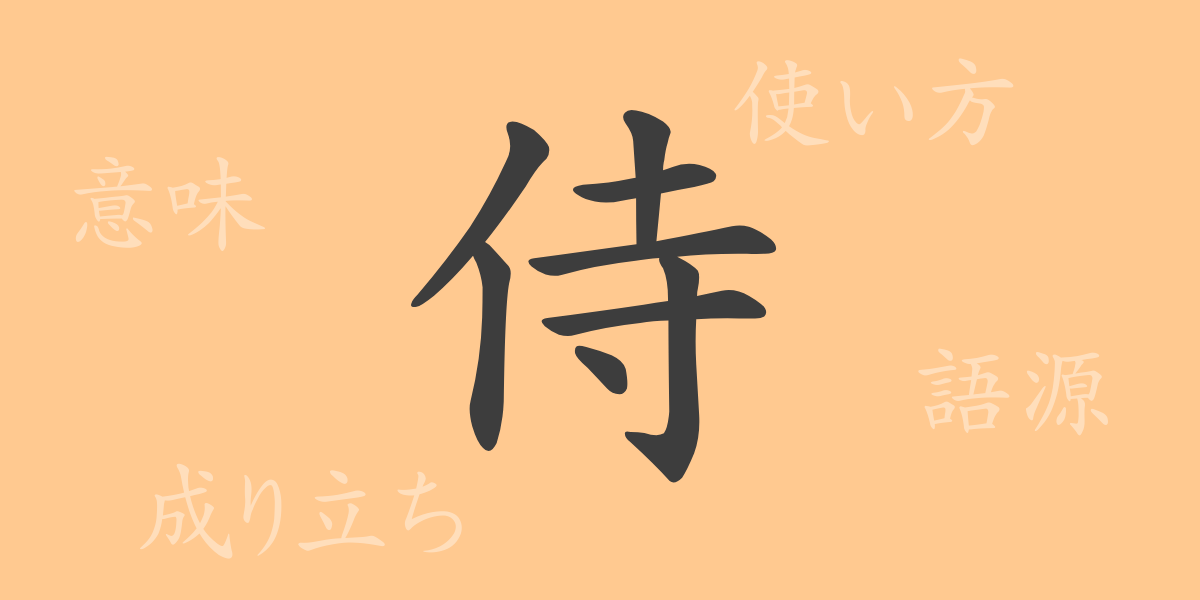In Japanese culture and history, the samurai (侍, さむらい) hold an iconic status. This single character embodies profound meanings and complex backgrounds beyond just the warrior class. This article delves into the intricacies of the common kanji “侍” by exploring its origins, meanings, usage, readings, stroke count, and radical, as well as introducing idioms and expressions related to samurai. Join us on a journey to rediscover the charm of samurai, a symbol of the Japanese spirit.
Origins of 侍 (Etymology)
The term “samurai” originates from the ancient Japanese phrase “saburau” (事に侍る, さぶらう), meaning to serve a master. During the Heian period, samurai served as armed guards protecting the court and nobility. Over time, the term became synonymous with “bushi” (武士, ぶし), representing the warrior class that formed a ruling class through martial prowess. The development of samurai is closely tied to shifts in power throughout Japanese history, significantly influencing Japanese society.
Meanings and Usage of 侍
Originally derived from the verb “to serve,” the kanji 侍 came to refer to warriors or samurai. It particularly denotes those who uphold the code of bushido, demonstrating loyalty and devotion to their lord. In modern contexts, samurai symbolize Japanese warrior culture and spirit, often used with respect. Metaphorically, it can also describe someone who faithfully serves a cause or person.
Readings, Stroke Count, and Radical of 侍
Detailed information about the kanji 侍 includes:
- Readings: On’yomi (音読み) is “ジ” and kun’yomi (訓読み) is “さむらい”
- Stroke count: 8 strokes
- Radical: The radical is 亻 (にんべん)
Idioms, Phrases, and Proverbs Using 侍
Many idioms, phrases, and proverbs feature the kanji 侍 in Japanese. Some notable examples include:
- 侍従 (じじゅう): A person who serves beside a lord or superior.
- 侍女 (じじょ): A woman who attends to the personal needs of nobility or royalty.
- 侍医 (じい): A physician dedicated to specific individuals.
- 「侍に二言はない」: A proverb expressing the unwavering resolve of a samurai, meaning that a samurai does not go back on their word.
Conclusion on 侍
The samurai symbolize traditional Japanese values and cultural spirit. From its etymology and modern usage to detailed kanji information and related idioms, the concept of samurai is deeply intertwined with the Japanese identity. Understanding samurai enriches one’s comprehension of Japanese culture, reflecting the aesthetics and ethics of the Japanese people. Through this article, we hope you can grasp the multifaceted significance of 侍 and appreciate its depth in Japanese culture.

























